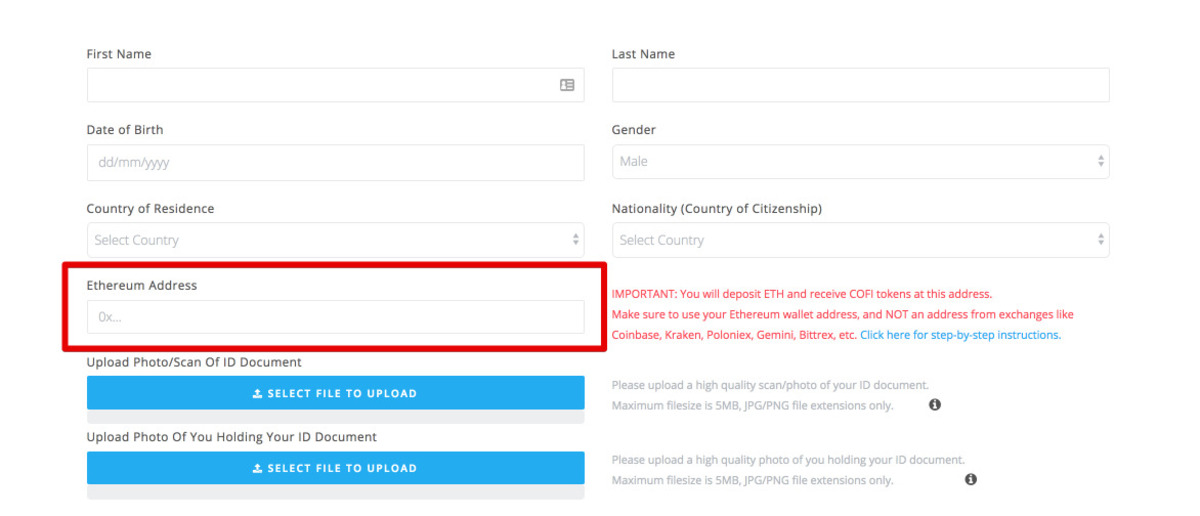Introduction
Smart contracts have emerged as a groundbreaking technology that has the potential to revolutionize various industries, including finance, supply chain management, real estate, and more. This innovative concept has gained significant attention and is being hailed as a game-changer in the way transactions are conducted.
But what exactly are smart contracts? How do they work, and why are they important? In this article, we will delve into the intricacies of smart contracts, exploring their benefits and potential use cases.
Smart contracts, as the name suggests, are digital contracts that are self-executing and enforceable without the need for intermediaries. These contracts are built on blockchain technology, which ensures their integrity, security, and immutability.
The beauty of smart contracts lies in their ability to automate and streamline business processes, providing a more efficient and transparent way of conducting transactions. By eliminating the need for intermediaries, such as lawyers, bankers, or brokers, smart contracts minimize the risk of human error, reduce costs, and enable faster execution.
The importance of smart contracts cannot be overstated. They have the potential to transform industries by offering increased efficiency, improved security, greater transparency, and enhanced automation.
In the following sections, we will explore the inner workings of smart contracts, their benefits, and some of the key use cases where they are making a significant impact.
What are Smart Contracts?
Smart contracts are self-executing agreements with predetermined rules and conditions encoded in computer code. These contracts are stored and executed on a decentralized and immutable blockchain network.
Unlike traditional contracts that require intermediaries to ensure compliance and enforceability, smart contracts eliminate the need for third-party involvement. Once the predefined conditions of a smart contract are met, it automatically executes the terms of the agreement without any further human intervention.
Smart contracts are designed to be transparent, secure, and tamper-proof. They operate on a trustless system, meaning there is no need to rely on a central authority or individual to validate and enforce the terms. The code of the smart contract ensures that all parties involved adhere to the agreed-upon conditions.
These contracts can be used for various purposes, including financial transactions, supply chain management, legal agreements, and more. By leveraging blockchain technology, smart contracts offer a high level of accuracy, efficiency, and accountability.
Smart contracts are typically written in programming languages specifically designed for creating and executing contracts, such as Solidity for Ethereum. They are stored on the blockchain network, making them accessible to all participants and ensuring transparency.
One of the defining characteristics of smart contracts is their automatic execution. Once the predetermined conditions are met, the contract carries out the specified actions or transfers the assets as programmed. This eliminates the need for intermediaries, reduces the risk of fraud, and accelerates the transaction process.
Overall, smart contracts provide a powerful and secure solution to traditional contract management and execution. By combining the benefits of blockchain technology with automation, they offer a new level of efficiency, transparency, and trustworthiness in various industries.
How do Smart Contracts Work?
Smart contracts operate on blockchain technology, utilizing the decentralized and distributed ledger to execute and enforce agreements. Here’s a simplified overview of how smart contracts work:
- Creation: A smart contract is written by a developer using a programming language specifically designed for smart contracts, such as Solidity.
- Deployment: The smart contract is deployed onto a blockchain network, such as Ethereum or Hyperledger. Once deployed, it becomes a permanent and immutable part of the blockchain.
- Interaction: Participants who want to engage with the smart contract can do so by sending transactions to it. These transactions trigger specific actions or functions within the contract’s code.
- Validation: The blockchain network validates the transactions and ensures that they comply with the rules and conditions set within the smart contract. This process involves consensus mechanisms, such as proof-of-work or proof-of-stake.
- Execution: Once the validation process is complete, the smart contract automatically executes the predetermined actions or transfers assets according to its programming logic.
- Immutability: The executed actions and results of the smart contract are permanently recorded on the blockchain, ensuring transparency and immutability. This means that the outcomes cannot be altered or tampered with.
Smart contracts can interact with external data sources, known as Oracle services, to access real-world information or trigger actions based on real-time events. For example, a smart contract for insurance claims might rely on an Oracle service to verify weather data and automatically process claims in case of a specified weather condition.
It’s important to note that smart contracts are deterministic, meaning that their behavior is entirely predictable based on the input parameters and code logic. This gives participants a high level of confidence in the execution and outcome of the contract.
Overall, smart contracts simplify and automate the traditional contract process by eliminating the need for intermediaries, ensuring transparency, and providing secure and tamper-proof execution of agreements on the blockchain.
Benefits of Smart Contracts
Smart contracts offer a wide range of benefits that make them an appealing technology for various industries. Let’s explore some of the key advantages:
- Increased efficiency and cost savings: Smart contracts automate many manual processes, eliminating the need for intermediaries and reducing administrative tasks. This leads to faster transaction times, lower costs, and improved operational efficiency.
- Increased security and immutability: Smart contracts are securely stored on a blockchain, ensuring that they cannot be altered, tampered with, or deleted. The decentralized nature of blockchain technology provides a higher level of security and trust compared to traditional centralized systems.
- Greater transparency and trust: Blockchain-based smart contracts enable transparent and auditable transactions as all records are stored on a public ledger. This transparency builds trust among participants and reduces the risk of fraud or manipulation.
- Enhanced automation and accuracy: Smart contracts automatically execute actions and enforce conditions based on predefined rules. This reduces the potential for human error and ensures accurate contract execution, leading to improved reliability and accountability.
These benefits make smart contracts ideal for a wide range of use cases in various industries. Let’s explore some of the key areas where smart contracts are making a significant impact.
Increased efficiency and cost savings
One of the primary benefits of smart contracts is their ability to increase efficiency and generate cost savings in various business processes. Here’s how smart contracts achieve this:
1. Elimination of intermediaries: Traditional contracts often require the involvement of intermediaries, such as lawyers, brokers, or bankers, to facilitate and verify agreements. Smart contracts remove the need for intermediaries, reducing administrative tasks, streamlining processes, and eliminating associated costs.
2. Automated execution: Smart contracts automate the execution of predefined conditions and actions. This eliminates the need for manual intervention and reduces the time required to complete transactions or enforce agreements. By accelerating the process, businesses can save time and resources.
3. Streamlined processes: Smart contracts simplify and consolidate complex processes into automated workflows. This streamlines operations, reduces bottlenecks, and minimizes the risk of errors or delays. As a result, businesses can optimize their efficiency and allocate resources more effectively.
4. Lower transaction costs: Smart contracts significantly reduce transactional costs associated with traditional contract management. By eliminating intermediaries, businesses can save on fees, commissions, and other expenses typically incurred during contract execution. This cost reduction is particularly beneficial for businesses dealing with high volumes of transactions.
5. Improved accuracy: Smart contracts operate on pre-programmed rules and conditions, leaving no room for ambiguity or interpretation. This reduces the risk of human error that can occur during manual processing. The automated and accurate execution of smart contracts increases reliability and minimizes the need for corrective actions or dispute resolutions, saving time and costs further.
6. Streamlined auditing and compliance: Smart contracts maintain a transparent and immutable record of all transactions on the blockchain. This simplifies the auditing process, as all transactional data is readily available and accessible. Moreover, the transparency of smart contracts enhances compliance with regulatory requirements, minimizing the risk of non-compliance penalties.
By leveraging the efficiency and cost-saving capabilities of smart contracts, businesses can optimize their operations, reduce overheads, and gain a competitive advantage in their respective industries.
Increased security and immutability
Another significant benefit of smart contracts is the increased security and immutability they offer compared to traditional contract systems. Here’s how smart contracts enhance security:
1. Blockchain technology: Smart contracts are built on blockchain technology, which operates on a decentralized and distributed network of computers. This decentralized nature ensures that no single point of failure exists, making it extremely difficult for malicious actors to compromise the system.
2. Encryption and cryptography: Smart contracts use cryptographic techniques to secure data and transactions. Encryption ensures that sensitive information is only accessible to authorized participants, while cryptographic hashes protect the integrity of the contract by creating a unique identifier for each transaction.
3. Tamper-proof nature: Smart contracts are stored on a blockchain, which is an immutable and append-only ledger. Once a smart contract is deployed and executed, it becomes virtually impossible to alter or tamper with the data without detection. This immutability enforces the integrity of the contract and ensures that the agreed-upon terms cannot be modified or manipulated.
4. Verifiable transactions: Every transaction conducted through a smart contract is recorded on the blockchain and can be independently verified by all participants. This transparency and auditability create a high level of trust as any fraudulent or unauthorized activities can be easily identified and traced back to their source.
5. Elimination of third-party trust: Smart contracts eliminate the need for intermediaries, such as lawyers or notaries, to validate and enforce agreements. By relying on the decentralized consensus mechanism of the blockchain, participants can trust that the agreed-upon terms will be automatically executed without the risk of manipulation or bias.
6. Resistance to hacking: Traditional contract systems are vulnerable to hacking attempts that can compromise the security and confidentiality of the agreements. Smart contracts, on the other hand, benefit from the robust security measures of blockchain networks, making them highly resistant to hacking or unauthorized access.
The increased security and immutability provided by smart contracts not only protect against fraud and manipulation but also enhance trust among participants. Businesses and individuals can rely on the self-executing and tamper-proof nature of smart contracts when engaging in transactions or agreements, mitigating risks and ensuring the integrity of their operations.
Greater transparency and trust
Smart contracts offer a higher level of transparency and trust compared to traditional contract systems. Here’s how smart contracts achieve greater transparency and build trust among participants:
1. Publicly verifiable transactions: Smart contracts are built on blockchain technology, which is a transparent and publicly accessible ledger. Every transaction conducted through a smart contract is recorded on the blockchain, allowing participants to independently verify and validate the transaction history.
2. Immutable record-keeping: Once a transaction is executed and recorded on the blockchain, it becomes permanent and cannot be altered or tampered with. This immutability ensures that the transaction history remains intact and provides an auditable trail of all activities associated with the smart contract.
3. Open and accessible information: Smart contracts store contract terms, conditions, and transaction details on the blockchain, making them accessible to all participants. This transparency allows parties to review and understand the terms before engaging in the contract, creating a sense of openness and trust.
4. Elimination of intermediaries: Smart contracts remove the need for intermediaries, such as lawyers or brokers, who traditionally served as trusted third parties. By relying on the automation and self-executing nature of smart contracts, participants can engage directly with one another, reducing the risk of fraudulent or untrustworthy practices.
5. Consensus-based decision-making: Smart contracts rely on a consensus mechanism, where all participants in the blockchain network must agree on the validity of each transaction. This ensures that all parties have an equal say in the execution and enforcement of the contract, fostering a sense of trust and fairness.
6. Minimization of human error: The automation of smart contracts minimizes the potential for human error and subjective interpretation of contract terms. All actions and conditions are programmed into the smart contract code, ensuring consistent and accurate execution without the risk of human biases or mistakes.
By providing transparency, eliminating trust barriers, and ensuring the integrity of transactions, smart contracts empower participants to engage in agreements with greater confidence. The transparency and trustworthiness inherent in smart contracts can transform industries by reducing the reliance on intermediaries and building stronger relationships between parties.
Enhanced automation and accuracy
One of the significant benefits of smart contracts is their ability to enhance automation and accuracy in business processes. Here’s how smart contracts achieve this:
1. Automated execution: Smart contracts are self-executing agreements that automatically initiate and execute transactions once the predetermined conditions are met. This eliminates the need for manual intervention and ensures swift and accurate execution of contractual obligations.
2. Pre-programmed rules and conditions: Smart contracts operate on predefined rules and conditions encoded within their code. These rules outline the specific actions to be executed, ensuring consistency and accuracy in the fulfillment of contractual obligations.
3. Elimination of human error: By removing manual intervention and relying on code execution, smart contracts minimize the potential for human error. The predetermined and automated nature of smart contracts reduces the risk of mistakes, misinterpretations, or omissions that can occur in traditional contract processes.
4. Real-time updates: Smart contracts provide real-time updates and notifications to participants about the status and progress of the contract. This ensures that all parties are aware of the latest developments, thereby facilitating timely decision-making and avoiding delays that could impact the accuracy of contract execution.
5. Immutable and transparent record-keeping: As smart contracts operate on a blockchain, every transaction and interaction is recorded and permanently stored. This transparent and immutable record-keeping mechanism ensures that the contract’s history and execution details are accurately maintained and can be easily audited or referenced if needed.
6. Enhanced auditability: Smart contracts facilitate the auditing process by providing transparent and easily verifiable transaction records. Auditors and regulatory bodies can efficiently assess a contract’s compliance, ensuring accuracy, and minimizing the need for extensive manual reviews or investigations.
7. Improved efficiency: Automation and accuracy offered by smart contracts contribute to overall process efficiency. By significantly reducing manual tasks, eliminating errors, and streamlining operations, businesses can allocate resources more effectively, improve productivity, and achieve cost savings.
Through enhanced automation and accuracy, smart contracts transform traditional manual processes by minimizing the potential for error, ensuring accurate and timely execution of contractual obligations, and improving overall operational efficiency.
Use cases for Smart Contracts
Smart contracts have a wide range of use cases across different industries. Their ability to automate processes, increase transparency, and enhance security makes them applicable to various scenarios. Let’s explore some prominent use cases:
1. Finance and banking: Smart contracts can automate payment processing, loan agreements, and insurance claims, reducing the need for intermediaries and minimizing the risk of errors or disputes.
2. Supply chain management: Smart contracts enable transparent tracking of goods throughout the supply chain, ensuring secure and automated verification of product origins, authentication, and delivery.
3. Real estate and property transactions: Smart contracts streamline the buying, selling, or leasing of properties by automating tasks such as property title transfers, escrow payments, and contract enforcement.
4. Intellectual property rights management: Smart contracts can be used to establish ownership, manage licensing agreements, and automate royalty payments for creative works, patents, or trademarks.
5. Healthcare: Smart contracts can securely store and manage patient records, automate insurance claims processing, and facilitate secure sharing of medical data between healthcare providers.
6. Voting systems: Smart contracts can be utilized for transparent and secure voting systems, providing trust and accuracy in the election process while reducing the potential for voter fraud.
7. Supply chain finance: Smart contracts can enable automated financing solutions based on real-time data and supply chain performance, allowing businesses to access working capital more efficiently.
8. Identity verification: Smart contracts can facilitate secure identity verification processes, reducing the risk of identity theft and providing a more efficient and reliable means of authentication.
9. Gaming and gambling: Smart contracts can be used to create decentralized gambling platforms, ensuring fairness, transparency, and secure payout mechanisms for participants.
10. Legal contracts and dispute resolution: Smart contracts can automate legal agreements and enable self-executing dispute resolution mechanisms, expediting the resolution process and reducing legal costs.
These are just a few examples of how smart contracts can be applied in various industries. As the technology continues to evolve, and more businesses embrace the concept, we can expect to see a wide array of innovative use cases that leverage the benefits of smart contracts.
Finance and banking
The finance and banking industry is experiencing a significant transformation with the adoption of smart contracts. Here are some key use cases of smart contracts in the finance and banking sector:
1. Payment processing: Smart contracts can revolutionize payment systems by automating the execution and settlement of transactions. Traditional payment processes, such as wire transfers or checks, involve multiple intermediaries and can take days to complete. With smart contracts, payments can be executed instantly, reducing costs and improving efficiency.
2. Loan agreements: Smart contracts have the potential to simplify and automate the loan approval process. By evaluating borrower eligibility criteria, verifying collateral, and automatically executing loan disbursements and repayments, smart contracts eliminate the need for manual intervention, reduce paperwork, and streamline the lending process.
3. Insurance claims: Smart contracts can automate insurance claim processing by automatically verifying the occurrence of an insured event, assessing the damages, and executing claim payments accordingly. This eliminates lengthy paperwork and speeds up the claims settlement process, providing faster relief to policyholders.
4. Trade financing: Smart contracts can enable more efficient and secure trade finance solutions. By automating processes such as letters of credit, supply chain financing, and invoice factoring, smart contracts improve transparency and provide accessible financing options for small and medium-sized enterprises (SMEs).
5. Regulatory compliance: The use of smart contracts can assist in enhancing regulatory compliance within the finance and banking industry. Smart contracts can automatically enforce compliance rules such as anti-money laundering (AML) and Know Your Customer (KYC) requirements, reducing the risk of non-compliance and helping to maintain regulatory standards.
6. Asset management: Smart contracts can facilitate the creation and management of digital assets, such as tokens or securities, providing a secure and transparent mechanism for asset trading and ownership transfer. This simplifies the process of investing and managing assets, potentially reducing costs associated with traditional investment intermediaries.
7. Cross-border transactions: Smart contracts can streamline cross-border transactions by automating processes such as foreign exchange conversions and compliance checks. This can reduce reliance on intermediaries, speed up transaction settlement times, and minimize associated fees.
The use of smart contracts in the finance and banking sector has the potential to increase operational efficiency, reduce costs, and enhance security and transparency. As the technology continues to mature and gain wider adoption, we can expect to see further innovation and improvements in financial processes.
Supply chain management
Supply chain management is a complex process involving various stakeholders, logistics, and transactions. Smart contracts offer significant advantages for improving transparency, efficiency, and security within the supply chain. Here are some key use cases of smart contracts in supply chain management:
1. Transparent tracking and tracing: Smart contracts enable the tracking and tracing of goods throughout the supply chain. Each step in the process can be recorded on the blockchain, allowing all participants to have real-time visibility into the movement, origin, and condition of the products. This transparency reduces the risk of counterfeiting, improves product authenticity, and enhances consumer trust.
2. Automated supply chain interactions: Smart contracts can automate the interactions and transactions between different entities within the supply chain. For example, when a product is delivered, smart contracts can automatically trigger payments, update inventory records, and adjust order quantities. This automation reduces manual errors, streamlines processes, and improves overall efficiency.
3. Supplier verification and compliance: Smart contracts can verify the authenticity and compliance of suppliers by storing and updating relevant information, such as certifications, licenses, and quality standards, on the blockchain. This ensures that only verified and compliant suppliers are involved in the supply chain, reducing the risk of counterfeit or substandard products.
4. Efficient inventory management: Smart contracts can automate inventory tracking and management. By utilizing sensors, Internet of Things (IoT) devices, and real-time data feeds, smart contracts can automatically update inventory levels, trigger reordering when stock is low, and optimize inventory management to minimize costs and eliminate stockouts.
5. Secure contract enforcement: Smart contracts provide secure and tamper-proof contract enforcement within the supply chain. For example, smart contracts can automatically enforce penalties or discounts based on predefined conditions, such as delayed deliveries or quality issues. This reduces disputes, establishes trust, and ensures compliance with contractual obligations.
6. Sustainable and ethical supply chains: Smart contracts can promote sustainability and ethical practices within the supply chain. By tracking and verifying the origin and certifications of raw materials or products, smart contracts enable businesses and consumers to make informed decisions that align with their values, such as supporting fair trade or environmentally friendly practices.
Overall, smart contracts have the potential to transform supply chain management by increasing transparency, streamlining processes, and enhancing security and trust among supply chain stakeholders. The automation and efficiency provided by smart contracts contribute to a more reliable and resilient supply chain ecosystem.
Real estate and property transactions
Real estate and property transactions are traditionally complex and involve multiple intermediaries, paperwork, and lengthy processes. Smart contracts offer significant advantages in terms of efficiency, transparency, and security within the real estate industry. Here are some key use cases of smart contracts in real estate and property transactions:
1. Streamlined property transfers: Smart contracts can streamline the process of transferring property ownership by automating tasks such as title searches, verification of ownership, and the execution of transfer agreements. This reduces paperwork, speeds up the transaction process, and minimizes the potential for errors or disputes.
2. Smart escrow services: Smart contracts can automate escrow services in real estate transactions. Funds can be held securely in an escrow account and released automatically once the predefined conditions, such as contract approval or property inspection, are met. This eliminates the need for a third-party escrow agent and provides transparency and efficiency.
3. Rental agreements and leasing: Smart contracts can simplify the creation and execution of rental agreements and leasing contracts. Payment terms, rental conditions, and other clauses can be programmed into the smart contract, eliminating the need for manual agreement drafting, signing of physical documents, and rent collection.
4. Fractional ownership: Smart contracts can enable fractional ownership of real estate properties, allowing multiple investors to purchase and manage a property collectively. Dividends, rental income, and property management expenses can be automatically distributed among the investors based on the predefined terms in the smart contract.
5. Title and ownership verification: Smart contracts can provide a decentralized and tamper-proof record of property titles and ownership history. This increases the trust and transparency in property transactions, helps mitigate fraud, and facilitates more efficient due diligence processes.
6. Automation of property-related financial transactions: Smart contracts can automate financial transactions related to real estate, such as mortgage or loan repayments. Payments can be scheduled based on predefined conditions, reducing the risk of late payments and improving financial accuracy and efficiency.
7. Real estate crowdfunding: Smart contracts facilitate real estate crowdfunding by automating the investment process, verifying investor accreditation, and automatically distributing investment returns. This allows for easier and more transparent participation in real estate investment opportunities.
The adoption of smart contracts in real estate and property transactions has the potential to streamline processes, reduce costs, and increase the speed and security of transactions. By leveraging the benefits of blockchain and automation, smart contracts are transforming the way real estate transactions are conducted, making them more accessible, efficient, and transparent.
Intellectual property rights management
Intellectual property rights management is a critical aspect of industries that rely on innovation, creativity, and original ideas. Smart contracts offer several advantages for efficient and secure intellectual property (IP) rights management. Here are some key use cases of smart contracts in IP rights management:
1. Proof of creation and ownership: Smart contracts can serve as a timestamped and immutable record of the creation and ownership of intellectual property. By storing digital certificates or ownership information on the blockchain, smart contracts can establish proof of authorship and provide a robust mechanism for ensuring IP rights protection.
2. Licensing agreements: Smart contracts can automate the process of licensing intellectual property. By defining the terms, conditions, and royalty rates within the contract code, smart contracts ensure accurate and transparent execution of licensing agreements. Payments can be automatically distributed to the IP owner based on the predefined agreement.
3. Royalty tracking and distribution: Smart contracts can track the usage and dissemination of intellectual property and ensure accurate royalty distribution. By automatically recording and verifying each use of the IP, smart contracts enable transparent tracking of royalty payments and reduce disputes and discrepancies between IP owners and licensees.
4. Digital rights management: Smart contracts can enforce digital rights management for digital content, such as music, videos, or e-books. By incorporating access rules and conditions into the smart contract, content creators can control and protect the distribution, usage, and copying of their digital assets.
5. Anti-counterfeiting measures: Smart contracts can help in the fight against counterfeit products by providing a transparent and tamper-proof record of legitimate products. Each product can be registered on the blockchain, and its authenticity can be verified through the smart contract, reducing the risk of counterfeit goods entering the market.
6. IP marketplace and crowdfunding: Smart contracts can facilitate the creation of decentralized IP marketplaces, where IP owners can list their creations, negotiate licensing terms, and receive payments directly through the smart contract. This enables more efficient and direct collaboration between creators and prospective licensees.
7. Smart contracts for patent filing: Smart contracts can automate the process of patent filing, including tracking the application process, recording important deadlines, and verifying the accuracy of the patent information. This streamlines the patent filing process, reducing administrative burdens and increasing efficiency.
Smart contracts provide a transparent, secure, and efficient solution for managing intellectual property rights. By leveraging the benefits of automation, accuracy, and trust offered by smart contracts, the IP rights management landscape is evolving to better protect creators and ensure fair compensation for their innovative works.
Conclusion
Smart contracts are revolutionizing various industries by providing a secure, efficient, and transparent way of conducting transactions and managing agreements. With their automation capabilities, smart contracts streamline processes, reduce costs, and minimize the potential for errors or disputes. By leveraging blockchain technology, smart contracts offer enhanced security, immutability, and trust, transforming the way business is conducted.
Throughout this article, we explored the concept of smart contracts, their benefits, and their application in different sectors. We discussed how smart contracts increase efficiency and cost savings by automating tasks, eliminating intermediaries, and streamlining processes. We also highlighted how smart contracts enhance security and immutability by leveraging blockchain technology, providing participants with transparency and trust in the transaction process.
Furthermore, we delved into various use cases of smart contracts, such as finance and banking, supply chain management, real estate and property transactions, intellectual property rights management, and more. Each use case demonstrated how smart contracts address specific challenges within those industries, offering improved efficiency, transparency, and accuracy.
As the adoption of smart contracts continues to grow, businesses and industries are exploring their potential to enhance operations, reduce costs, and streamline transactions. However, it is important to note that despite their numerous benefits, smart contracts are still an emerging technology, and challenges such as regulatory compliance, scalability, and standardization need to be addressed for widespread adoption.
In conclusion, smart contracts have the power to reshape traditional systems and deliver trust, transparency, and efficiency in various aspects of our lives. As technology advances and more applications are developed, smart contracts have the potential to transform industries, disrupt traditional business models, and pave the way for a more connected and secure future.

























